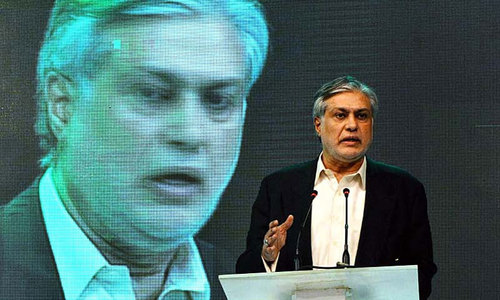Losses of PIA, PSM, Railways surge to Rs705bn in 3 years
ISLAMABAD: The losses incurred by three major public sector entities (PSEs) — the Pakistan International Airlines, Pakistan Railways and Pakistan Steel Mills — have surged to about Rs705 billion in three years despite continuous injection of funds into the organisations.
This is in addition to around Rs660bn debt piled up in the accounts of power sector companies, of which Rs348bn has been accumulated in three years, even though consumer tariffs have repeatedly been increased.
The revival of the loss-making PSEs was one of the central themes of a three-year economic reforms programme.
Put together, the cumulative losses incurred by the three PSEs and the power sector companies have increased to Rs1.365 trillion, which is more than the country’s consolidated annual development programme of Rs1.25 trillion for the current year.
This has been revealed by the International Monetary Fund (IMF) in its ‘scorecard’ of Pakistan’s structural reforms programme launched under its three-year Extended Fund Facility, which concluded on September 30.
The IMF also put on record that the losses incurred by the country’s natural gas sector increased to 11.5 per cent in three years, showing an increase of 1.4pc since the government joined the IMF programme in September 2013. In monetary terms, the annual loss of the natural gas system increased by about Rs6bn. The gas tariff was increased by 20pc during the period.
The IMF said the government promised to increase the tariff again in the current month.
The IMF said the cost of electricity delivered to consumers was increased by about 35pc to Rs11.9 per unit by increasing the base tariff and introducing a series of surcharges.
It said the total losses of the three PSEs stood at 1.7pc of GDP in 2012-13, but surged to 2.3pc of GDP at the end of fiscal year 2015-16. The GDP size has now increased considerably.
The IMF said that on the positive side the pace of accumulation of annual losses of PIA, PSM and PR declined in three years to 0.2pc of GDP or Rs61bn per year against Rs95bn or 0.4pc of GDP.
It said the consumer gas tariff was increased to Rs647 per unit against Rs540 per unit through gas infrastructure development cess (GIDC). It said the power sector payable arrears also increased from 2.2pc to 2.3pc of GDP.
This included Rs335bn arrears transferred to the Power Holding Company Limited. Excluding this, arrears at end of June this year were at 1.2pc of GDP (Rs321bn).
A major part of the power sector arrears were cleared in June and August 2013, the IMF said. “While arrears have re-accumulated, the pace of accumulation has been substantially reduced,” it said.
The IMF said that distribution losses in the power sector declined to 17.9pc from 18.9pc while the collection increased by almost 5pc to 92.6pc.
Also, the power sector subsidies dropped to 0.6pc of GDP from 2pc of GDP and outages for industrial sector dropped from nine hours to one hour per day.
Electricity outages for urban consumers dropped to five hours per day from eight hours in 2013.
Based on these outcomes, the IMF has stressed that restructuring and attracting private sector participation in ailing PSEs would be key to restoring their financial viability to reduce fiscal costs.
While planned privatisation transactions were scaled back early this year owing to political opposition and widespread strikes, the authorities reiterated their commitment to attracting private sector participation in the PSEs while continuing efforts to contain their losses.
The IMF noted that the relevant legislation required the government to keep majority shares and management control of PIA, but the government committed to attract private sector participation in the company and finalise the transaction structure for a minority sale by the end of the year.
In parallel, measures to reduce PIA’s financial and operating costs would continue to be implemented.
Secondly, following inconclusive discussions with a provincial government over transfer of PSM ownership, the government has resumed the privatisation process for the company and aims to conclude the bidding process by June 2017. The authorities will also continue to implement measures to limit PSM’s financial losses.
The IMF praised improvement in the Pakistan Railways’ revenue performance and the government’s commitment to move forward with its restructuring plan.
Published in Dawn, October 17th, 2016














































